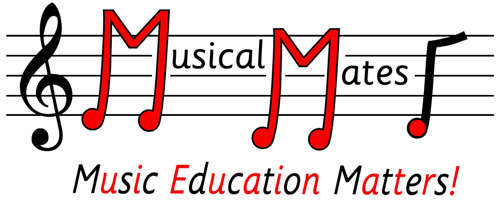Musical Mates Information For Music Tutors & Teachers
Recruitment
All prospective teachers / music tutors must:
- Obtain satisfactory DBS clearance before any further interviewing process and suitability for work is established;
- Pass an interview where they must perform on their principal instrument and answer questions pertaining to broad education matters as well as demonstrating an ability to know and understand current music education teaching techniques;
- Teachers / music tutors must demonstrate that they are capable of good relationships with pupils, staff and schools, be able to demonstrate that they are capable of sustaining long term tuition and know how to teach their instrument(s);
- Supply 2 relevant references;
- Teach part of a lesson where they will be assessed for suitability to work within schools.
Regular Observations and support for existing and new teachers / music tutors
We formally observe (and moderate) all instrumental teachers / music tutors at least once a year. Lesson observation criteria is always provided in advance. Head teachers/music coordinators are welcome to carry-out a joint observation with us. Teachers receive immediate verbal feedback (wherever possible). A written lesson observation is then emailed to the teacher and all of the schools which the teacher / music tutor works for through Musical Mates (anonymity of schools is preserved throughout, of course), with highlighted strengths; ‘areas for development’ and appropriate targets for their future professional development. If needed, a system of support is put in place to address any issues that a teacher / music tutor might have.
New Tutors and Induction
Please be aware that all of the music tutors / teachers who work through Musical Mates are self-employed. They are responsible for retaining all of their relevant receipts etc. and paying their own tax and National Insurance contributions.
How do music tutors / teachers get paid?
They invoice Musical Mates every month, (school needs to sign their invoices to verify the number of hours they have worked). Tutors are made aware of the claim dates at the beginning of every academic year.
Musical Mates Awards
We have now developed individualised Musical Mates Awards for many instruments, linked to the National Curriculum level descriptors for music as much as possible. The awards have a clear progression across 8 levels; they are a great way to measure pupil progress and give the children a wonderful self-esteem boost when they reach each Award milestone.
CPD for teachers / music tutors
We have regular meetings with the teachers / music tutors to discuss policies; teaching strategies and resources; up-to-date music education issues; resolve any issues etc.
Registers
All registers will now be kept in school and music tutors / teachers should collect them from the school office each time they visit a school.
Reporting and assessment
Some schools have asked music tutors and teachers to complete reports of the children, to feed into their current reporting system. Musical Mates supplies tutors with 2 formats of reports; one that pertains to small group teaching, where there will be space on the report for the peripatetic teacher to comment; the second will be suitable for large group (whole class) teaching.
School INSET / TRIP days
Schools have been asked to inform MUSICAL MATES of the dates of their school INSET days and TRIP days at their earliest convenience. This will help music tutors / teachers manage their timetables and avoid missed lessons. They may wish to ask schools for this information themselves, so they can organise their diaries.
Termly evaluations
Termly evaluations will be sent out to schools, pupils, parents and peripatetic teachers requesting evaluation of the performance of Musical Mates, so we can constantly improve the services delivered. Peripatetic teachers will also be asked to complete self-evaluations once per year. Read our testimonials for an example of some of the feedback we received last academic year.










